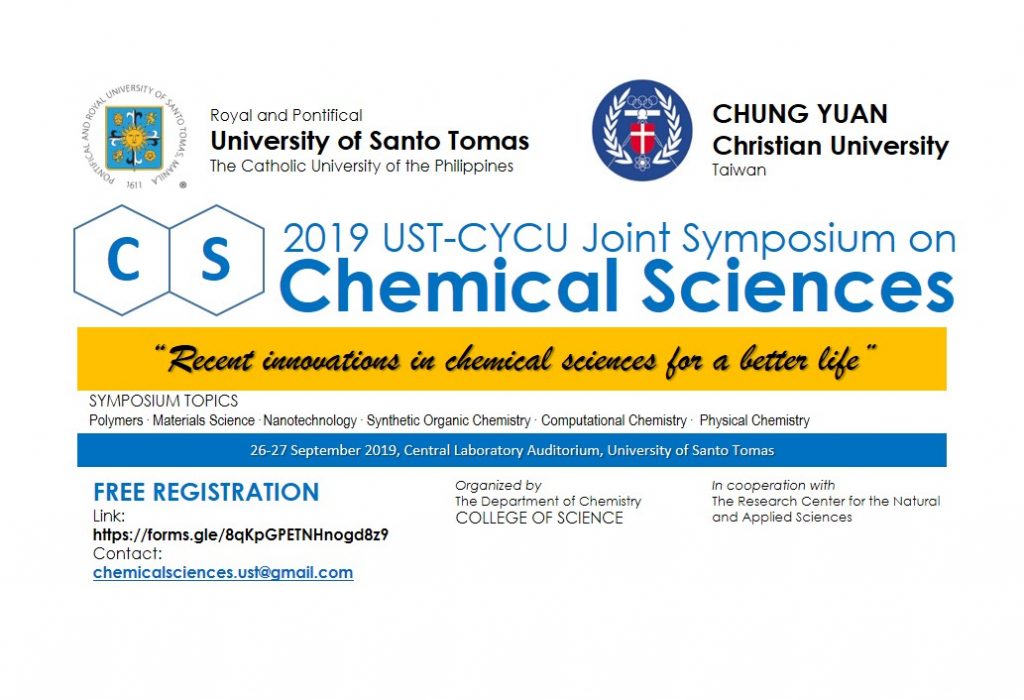Young Scientists’ Forum
Kapisanang Kimika ng Pilipinas – Division of Inorganic Chemistry and Allied Fields (KKP DICAF) and UP Institute of Chemistry (UPIC)
Dr. Hiyas Junio
Dr. Hiyas Junio has a PhD in Medicinal Biochemistry from the University of North Carolina. Her work involves metabolite profiling using LCMS,and synergy activity of secondary plant metabolites. While in graduate school, she joined the UNCG Photography Club and made a collection of photos of all the flowers growing on campus. She considers Dr. Mansukh Wani,discoverer of taxol, and Henri Cartier Bresson, a world renowned photographer, as her inspiration for doing research and photography, respectively. After a brief postdoc stint at Indiana University, she returned to UP in 2014.
Dr. Eiza Yu Roberto
Dr. Eizadora Yu Roberto obtained her PhD in Biochemistry and Molecular Biology degree in 2006, from the University of Maryland, at BC. Her research interests include proteomics and bioprospecting microorganisms for enzymes relevant to health and industry. She worked as a postdoc fellow at the Sandia National Labs, California, tailoring fungi based biofuels to meet the needs of current, advanced combustion engines.
Marlon Conato
Dr. Marlon Conato received his PhD in Chemistry,in 2012 from the University of Houston. He specializes in solid state chemistry and materials science, currently manages the Polymer Lab that provides services such as thermal!analysis (TGA, DSC, TMA), and materials property testing (UTM, ellipsometer, rheometer) to academic research and industrial samples. His research interests include preparation and characterization of crystalline microporous materials such as coordination polymers and zeolites and their applications in catalysis, gas storage, and separation.
Dr. Allan Yago
Dr. Allan C. Yago has a PhD in Chemistry obtained in 2014, from the University of the Philippines, Diliman. His research interests include preparation of chemical sensors for specific target molecules (pesticides, food contaminants, pollutants), electroactive conducting polymers (nanoparticle stabilizers, anticorrosion coating), as well as polymer composites for specific applications. He leads several government funded research projects such as pesticide sensor development for DOST/PCIEERD,conducting polymer composites for UPNSRI, and anticorrosion coatings for UPOVCRD.







